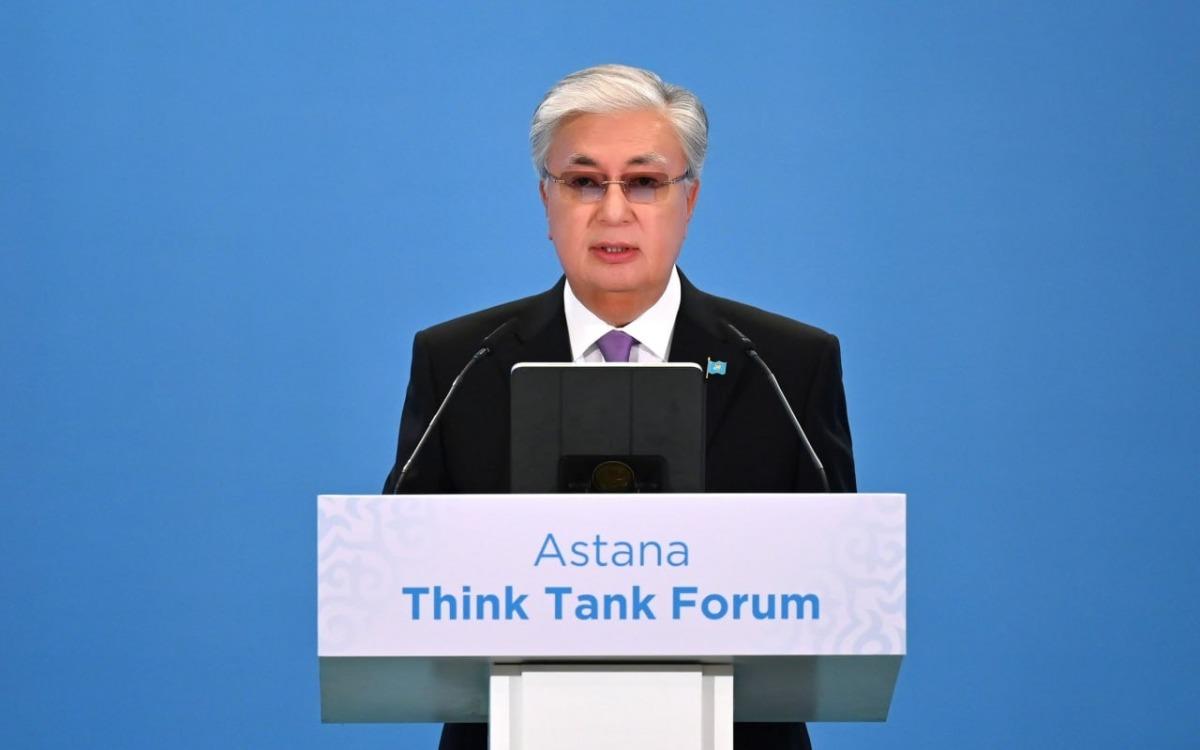
Emerging Role Of Middle Powers In World Order Discussed
ASTANA: The two-day Astana Think Tank Forum 2024 concluded yesterday in the capital, which centred on the theme, 'Middle Powers in a Changing Global Order: Strengthening Security, Stability, and Sustainable Development' and was organised by the Kazakhstan Institute for Strategic Studies.
Held under the auspices of the Astana International Forum, the event welcomed 50 experts from 22 countries, including leaders from foreign analytical centres, researchers, experts, and diplomats.
The forum put spotlight on the evolving role of middle powers in the complex, multipolar international landscape. The event offered thought-provoking insights that are set to have a lasting impact on global policy discussions around the growing role of middle powers.
The forum featured an engaging programme of keynote speeches, panel sessions, roundtables, and networking opportunities. President of Kazakhstan Kassym-Jomart Tokayev delivered a keynote address, underscoring the responsibility of middle powers to foster cohesion and cooperation in the international system.
Speaking during the plenary session Kazakh President Tokayev said,“As the global political landscape evolves, nations around the world face urgent challenges such as climate change, pandemics, cybersecurity threats, and geopolitical instability - complex problems that no single country can address in isolation. Tackling these issues demands collective action, international partnerships, and evolving diplomatic strategies, all of which are crucial in shaping the future of global geopolitics.
“The Astana Think Tank Forum 2024 provided a vital platform for over 50 leading international experts to exchange insights and advocate for a multilateral, interconnected global order. This collaborative spirit was exemplified in the session, 'Guiding International Peace: A Call for Mediators,' where think tank leaders and researchers examined the unique potential of middle powers to mediate global tensions and conflicts.
“Kazakhstan, as a prominent middle power, was ideally positioned to host and spearhead these conversations on the global political landscape. The event's success was greatly enhanced by its setting in Astana, which allowed think tank leaders, researchers, and other global experts to engage with one another in meaningful dialogue.”
Kazakh President added,“After two dynamic days and ten impactful sessions, discussions reached a strong consensus: although middle powers may lack the economic or military strength of global superpowers, they are uniquely positioned to shape the future of the international order through coalition-building, strategic diplomacy, and valuable contributions to global governance.
“The Astana Think Tank Forum, part of the broader Astana International Forum series, demonstrated the important role of middle powers in the global order and provided a compelling example of how these nations can lead, influence, and amplify their importance in global affairs.
Delivering the opening remarks on the first day of the forum, Kazakh First Deputy Foreign Minister Akan Rakhmetullin said,“Despite the geopolitical turbulence worldwide, our foreign policy principles remain consistent. We adhere to key principles of multi-vector policy, balance, pragmatism, and the protection of national interests.
“The level of mistrust between the main centres of power has brought us to the greatest risk of a conflict between nuclear powers. There will be no winners in the event of a global clash. We all understand that, and we have to act accordingly to prevent it.”
“It is clear that without open dialogue between East and West, based on the genuine multilateralism, the global stability and security are unattainable. Our strong conviction is that in these circumstances the role of middle powers in ensuring such a dialogue is increasing becoming more significant in the international arena.”
A session, 'Navigating Global Influence: Strategic Responses that took place on the first day explored how middle powers can expand their influence and respond to global challenges.
The session brought together notable experts, including Darren Spinck, Associate Fellow, Henry Jackson Society; Dr. Kamran Bokhari, Senior Director, Eurasian Security and Prosperity at the New Lines Institute, US; and Dorothée Schmid, Senior Research Fellow – Head of Turkiye and Middle East Programme, French Institute of International Relations.
One of the panellists, Spinck, focused on Kazakhstan's potential to stabilise global supply chains and facilitate multilateral ties. According to Spinck, Kazakhstan's unique geopolitical positioning enables the country to help shape a more balanced and stable multipolar world, particularly in light of recent global disruptions.
In his remarks, Bokhari discussed the broader strategies that middle powers employ to navigate global influence. According to him, middle powers often prioritise cooperation, but they are ultimately driven by national interests.

Legal Disclaimer:
MENAFN provides the
information “as is” without warranty of any kind. We do not accept
any responsibility or liability for the accuracy, content, images,
videos, licenses, completeness, legality, or reliability of the information
contained in this article. If you have any complaints or copyright
issues related to this article, kindly contact the provider above.


















Comments
No comment